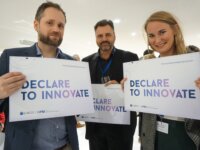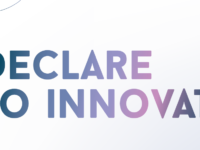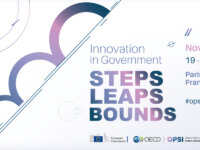The Draft OECD Declaration on Public Sector Innovation has been open since the 20th of November 2018, when the draft was launched at the Innovation in Government: Steps, leaps and bounds conference. Public consultation will close on the 22 of February 2019. To aid people in this last stretch of the consultation, we hosted a webinar where we discussed: How Canada developed and used its Federal, Provincial and Territorial Declaration on Public Sector Innovation How France...
Global: Innovation Declaration
This blog also appeared on Apolitical Not too long ago, I moved from Sydney to Paris. No amount of book-learning could have prepared me for the rapidity of spoken Parisian French nor the sharp and shaming rebuke of unimpressed store clerks when my failure to communicate well held up the line. This isn’t to say I didn’t learn a few things before immigrating. Au contraire. Skilled in the way of Australian small talk, I was very...
OPSI will host a webinar on the 13 February 2019 at 3pm (Paris time) on its draft Innovation Declaration. it will give country case studies on the use and usefulness of innovation declarations, overview the concepts underpinning OPSI's Declaration and offer practical guidance on how people can participate in the public consultation on the draft.
OPSI held its conference 'Innovation in Government: Steps, leaps and bounds' on the 19 and 20 of November 2018, convening leaders and innovators from around the world in Paris.
The OECD’s Observatory of Public Sector Innovation (OPSI) is seeking comment and input on the draft text of a Declaration on Public Sector Innovation. The consultation process will be open until Friday 22 February 2019 and you can contribute on the collaborative consultation platform. Questions about the consultation may be directed to [email protected]. This draft Declaration has been prepared with the belief that governments should innovate in order to serve people, and to serve them...
For ventures and start-ups to overcome Valley of Death (failure to survive within the first 3-7 years from start) and to explore sales channels in the early stage, the Korean Public Procurement Service designed VENTURE NARA. VENTURE NARA is a "stepping stone" where ventures and start-ups can promote and sell their products in the early stage, and prepare for jumping into the broader markets. As a prior stage to the Online Shopping Mall, VENTURE NARA is put in place where any ventures and…
The Government Digital Service and the Ministry of Housing, Communities and Local Government launched the Local Digital Declaration to support and unite local authorities around a shared understanding of good digital practice.
It is a unique call to action that addresses the legacy IT contracts, isolation of procurement practices and siloed digital projects that have left local government services vulnerable to high delivery costs and low customer satisfaction for the public they serve.
With the drafting of its first Constitution, Mexico City had a great opportunity: to explore innovative ways of crowd-sourcing this historic document, setting an example to other cities in the world on how to design important democratic experimentation at the scale of a megalopolis. The result of the entire Constitutional process is a forward-thinking document with progressive social policy and human rights at its heart. It became a legal reality in September 2018.
The Government of Slovenia has developed a new approach to preparing government services and public policies. Through specially designed workshops with a 360° approach to different stakeholders, these so-called ˝Policy Jams˝ aim to develop citizen-centred policy solutions. Based on systems theories and service design principles they open up the discussion space, while gearing participants toward finding viable innovative solutions.
The Flexi-Team helps advance top priority political projects, which could not have been implemented with the currently available staff. The team supports all divisions of the ministry that have temporary staff shortages due to absences or unfilled positions, or due to short-term projects. Furthermore, the Flexi-Team promotes a more flexible work environment in the ministry e.g. by establishing the use of modern knowledge management methods and by offering support in creative design processes.







